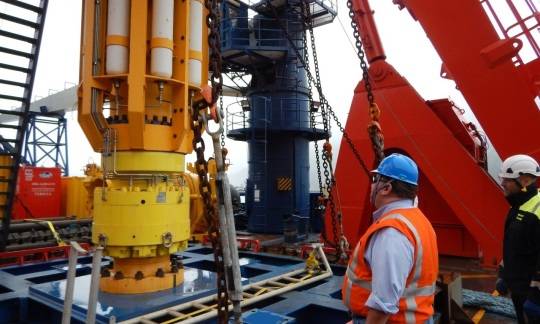
The U.S. Department of the Interior on Monday announced proposed revisions to the 2019 Well Control Rule, "to ensure offshore oil and gas operations on the Outer Continental Shelf are conducted with the utmost safety and oversight standards."
"This proposed rule from the Bureau of Safety and Environmental Enforcement (BSEE) builds on reforms instituted by the Department since the Deepwater Horizon tragedy that killed 11 offshore workers, caused billions of dollars of damage, and made lasting impacts to the environmental landscape in the Gulf of Mexico," DoI said.
"Proposed revisions to the 2019 Well Control Rule, which will be in the Federal Register this week, focus on well integrity and blowout prevention. These innovations will help protect human lives and the environment by incorporating the latest technology and the lessons learned from operator experience and incident data since the current rule was adopted," the DoI said.
Following the DoI's announcement, National Ocean Industries Association (NOIA) President Erik Milito issued the following statement:
“We will review and work with industry and regulators to ensure that the proposed regulatory changes increase safety and decrease risk. The Well Control Rule is a highly technical rule; logical and collaborative updates must flow through subject matter experts to promote decisions based upon sound engineering practices and design.
“The 2019 revisions to the Well Control Rule addressed technical problems and cleared up ambiguity with the original rulemaking. 274 of the 342 provisions in the original Well Control Rule were left unchanged. Any further updates to the Well Control Rule should follow a similar tailored approach that does not result in unintended adverse safety consequences.
"Nothing is more important to the oil and gas industry or to the regulator than the safety of our people and their communities and the environmental protection of our waters and coasts. Every barrel of oil produced in the Gulf of Mexico is a barrel produced under some of the highest environmental and safety standards in the world. Our industry has built world-class oil and gas production with a smaller environmental footprint and has been at the forefront of developing new safety equipment and improving safety standards. Our industry embraces a cycle of continuous improvement and innovation with a focus on ever-improving safety in operations. We appreciate the opportunity to work with BSEE on our mutual objective of safe and environmentally responsible energy development.”
The Department is proposing the revisions after concluding its review of the current rule in accordance with President Biden’s Executive Order 13990, Protecting Public Health and the Environment and Restoring Science to Tackle the Climate Crisis.
The Department is proposing revisions that would:
“The Biden-Harris administration is committed to the highest standards of worker safety and environmental protections. This proposed rulemaking will help ensure that offshore energy development utilizes the latest science and technology to keep people safe,” said Secretary Deb Haaland. “As our nation transitions to a clean energy economy, we must commit to strengthening and modernizing offshore energy standards and oversight.”
“Protecting human lives and the environment has always been BSEE’s highest priority, and this proposed rulemaking will further ensure safe and environmentally responsible offshore energy production,” said BSEE Director Kevin M. Sligh Sr. “These proposed revisions to the Well Control Rule are the result of knowledge and experience gained by stakeholders and BSEE since the 2019 rule was implemented. They will protect workers’ lives and the environment from the potentially devastating effects of blowouts and offshore oil spills.”
In the immediate aftermath of the Deepwater Horizon incident in 2010, BSEE adopted several recommendations from multiple investigation teams to improve the safety of offshore energy operations, leading to the publication of the 2016 Well Control Rule. In May 2019, BSEE published a final rule that, DOI says, weakened certain safety provisions. The newly proposed rule would revise some of the items that were amended or rescinded in 2019.